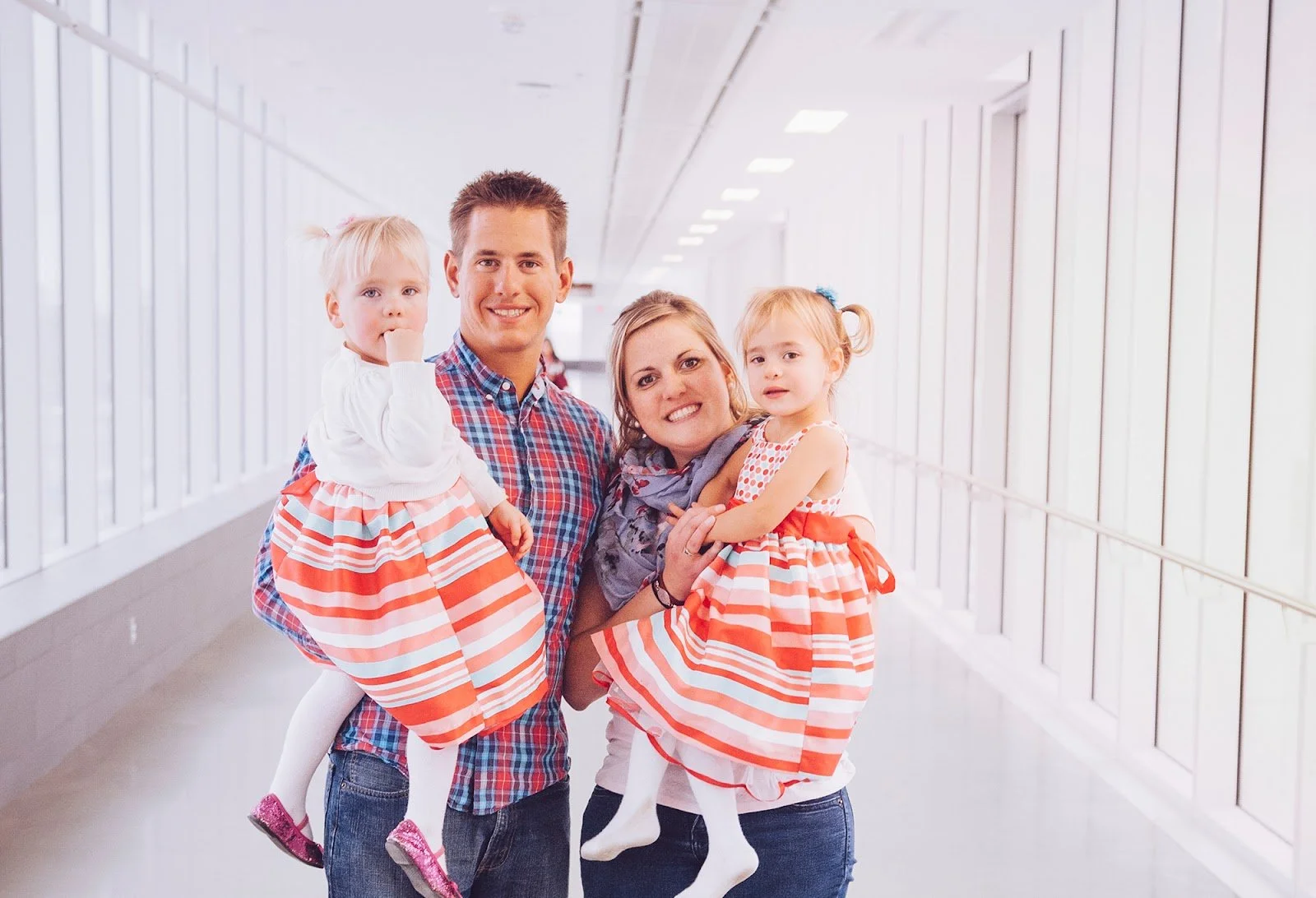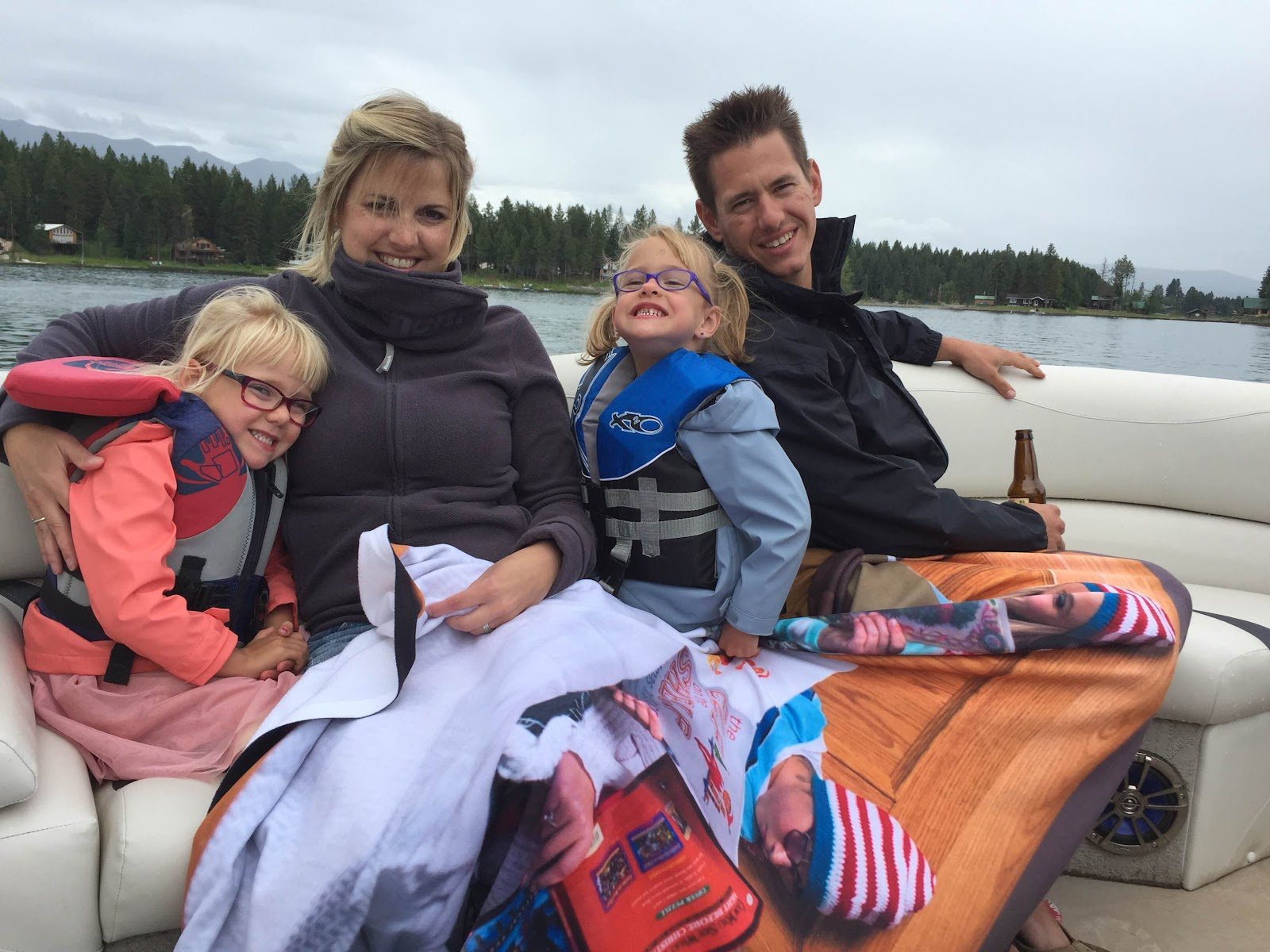Remembering Karen: The Most Important Story I’ve Ever Told
For the past 2 years, I’ve been trying to figure out the best way to tell this story. It has kept me up some nights, became a major reason I started blogging, and it reignited my passion for storytelling.
This story has thoroughly consumed me at times. It’s been an intense, emotional journey. The best stories usually are.
It’s June of 2018 and I’m driving across the prairies, with the Rockies slowly fading in my rearview mirror. My head is spinning, thoughts spiralling in hundreds of directions. I can’t focus, so I start dictating my thoughts into my phone.
All of this starts with Karen.
I’ve just spent the weekend in southern Alberta visiting with Karen and her family. Over the course of just a few hours, I’ve listened to a story so unbelievable, heart wrenching and inspiring that it’s hard to figure out how I can ever do it justice.
I first heard about Karen from Dr. Jayan Nagendran, a cardiac surgeon at the University of Alberta. I was interviewing Dr. Nagendran to highlight his research. His work focuses on ex-vivo organ perfusion. This innovative process takes organs out of a donor body and keeps them stable by circulating blood and nutrients through them. This gives surgeons enough time to repair organs that otherwise would not be able to be suitable for transplant.
He explained that Alberta is one of the hardest places in the world to get an organ donor. That’s why Nagendran‘s work is so groundbreaking. His work is truly life-saving; helping people who wouldn’t otherwise get organ transplants due to a lack of availability.
As I spoke with him about his research and his patients, his eyes lit up when he mentioned Karen. He rushed over to his bulletin board and pulled down a Christmas card with a photo of a beautiful family.
Brent and Karen Hamilton with their daughters
Karen was a young mother who had cystic fibrosis. She lived in Taber with her husband Brent and twin daughters Lily and Emma.
Cystic Fibrosis is a genetic disorder that affects the lungs and digestive system. From the time she was a child, Karen knew that cystic fibrosis would limit her life expectancy to 20 or 30 years. Sickness was a constant throughout her childhood and teenage years.
Karen and Brent wanted to raise a family, but Karen was unable to carry children. Karen was still healthy and felt she still had enough time on this earth to become a mother.
One of Karen’s close friends volunteered to be a surrogate. Eventually, they found out she was going to carry twins for them.
Unfortunately, Karen’s health rapidly started to decline and she was hospitalized. Karen’s lungs were constantly filling with fluid. Her lung capacity was down to 23%. She was exhausted and spent most of her days coughing and struggling to breathe.
Karen in the hospital
Right around that same time she and Brent learned that their daughters were about to be born 3 1/2 months premature. Karen knew she needed a transplant. Without one she didn’t have long to live.
Karen went through the application process to get on the transplant list. Doctors told her that it could take up to two years to get a new pair of lungs. She was forced to be a bystander as her husband, family and friends stepped in to care for her tiny twin daughters.
She remained hopeful and pursued the process. After all, what choice did she have?
During the application process, Karen was approached by a research team member who told her about a new pilot project that could give her a better chance of receiving a pair of lungs. This project was the start of Dr. Jayan Nagendran’s work in organ perfusion. Karen jumped at the chance and the waiting started.
Karen feeding her daughters, hooked up to oxygen
On December 23, 2013, Karen got a phone call. There was a potential pair of lungs, was she interested? (Yes.) A plane would be in Lethbridge for her in an hour. Brent got her to the airport, got their little girls ready, and drove to Edmonton. Later that night, Karen was prepped for potential surgery. The research team also informed Karen and Brent that there was a very good chance that they wouldn’t be able to save the lungs and that she would be sent back home without a transplant. They waited anxiously.
On the morning of Christmas Eve at around 11 AM, Karen, and Brent got word that surgery was 30 minutes away. Karen underwent one of the most intensive medical procedures a person can endure. They opened her chest, removed her lungs, and replaced them with the donor’s lungs. The recovery process was long and difficult, but with time, she improved tremendously. In fact, when I met Karen in 2018, her lung function was at an astounding 105%.
When I first spoke with Karen in late 2017, she said that the transplant enabled her to do things she’d never done before and that she’d never felt so healthy in her entire life. She no longer needed to be in bed early due to exhaustion. She could finally keep up with her daughters and had the energy for a range of new hobbies. She enjoyed biking, attended weekly workout classes and even climbed a mountain.
Karen taking her daughters for a bike ride.
This is the story Karen shared with me over the course of that June weekend. She invited me and a videographer, Dan, to spend the weekend with her family at Crowsnest pass. We watched their children and family gather around the campfire, sharing stories, drinks and laughter. We went off-roading on the nearby trails and took in the majestic scenery of the Rockies.
There’s nothing quite like listening to someone tell you about their scariest, funniest, most humbling, or happiest moments. As we sat around the campfire with Karen, her family and friends, I felt so honoured that this family let us into their lives. Over the course of just a few hours, they welcomed us with open arms and shared some of the most intimate details of their lives with us. Not only that, but they also agreed for us to share them with others.
Karen, Brent and their girls at the lake
We met with Karen and her family in June of 2018. Sadly, later that same year, Karen contracted the West Nile Virus and passed away. Her legacy lives on, though. Throughout her life, Karen was a powerful patient advocate and spokesperson. She used her experiences to help raise awareness about the importance of organ donation, raise funds for important research facilities and organizations and shared her story widely.
Today, the research lab that started it all has been renamed the Karen Jane Hamilton Ex Vivo Organ Perfusion Research Laboratory.
The video Dan filmed for this story lives at Be The Cure.
Stories are how we as humans connect with one another and they’re incredibly powerful things. As the memories of the weekend slowly drifted into the past I was struck by the realization that I can’t stop telling stories. I don’t own this story. Karen does. But I can ensure it gets told to as many people as possible.
I also can’t help but think of all the other stories out there waiting to be told. In marketing, it can be so easy to get wrapped up with things like generating leads, developing content, managing budgets, and timelines. But at the end of the day what we’re all trying to do is connect with one another and just feel human. Storytelling is the primary way we’ve always done that and it’s something I’m trying to learn to be better at. I feel like in order to do that, I first needed to share Karen’s story.






